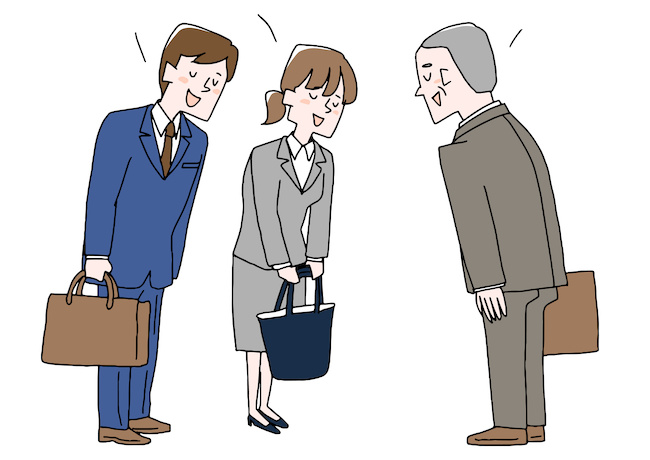A Beginner's Guide to Japanese Business Etiquette

In Japan, there are rules of etiquette suitable for interactions between acquaintances, between customers and shop assistants in shops and in all other social situations. These rules and customs are also essential for businesses in Japan. There are some cultural aspects unique to Japan that are not found in other countries, and it is a good idea to know them before starting to work in Japan. Below are some guidelines to help you to understand the Japanese business manners and etiquette.
Greetings and Introduction
Bowing in Japan


Unlike in Western cultures, where shaking hands is common, in Japan people bow. Some Japanese shake hands when the other person is a foreigner however, if the other person bows to you, bow in the same way. When bowing, straighten your back and bend your body from the hip joint for a clean look.
>> Japanese Body Language and Gestures
Japanese Business Cards


The presenting of business cards (meishi in Japanese) is another critical element of business introductions. Business cards should be presented with both hands, face up and facing the person receiving the card. When receiving a business card, accept it with both hands and review its details.
Be sure to treat all cards received with respect. Never write on a business card that you receive in front of them.
>> Japan Business Card Etiquette – Everything an Expat Should Know
Japanese Business Attire


Despite the government policies for Warm Biz and Cool Biz dress codes, business attire is still very formal in Japan. For men, the rule is dark suits, white shirts, and muted ties. For women, the same color rules generally apply, with either pant suits or longer skirt suits being the generally accepted mode of dress.
>> Dress Code in Japan: A Guide to Appropriate Japanese Attire
When you enter a traditional Japanese home or other traditional venues such as temples or restaurants, always remove your shoes. Typically, it will be quite apparent when this is required because there will be an obvious step up to the interior where shoes are disallowed, often accompanied by a cubby where shoes can be stored and indoor slippers acquired. When in doubt, just do what your hosts or other Japanese are doing in this regard.
One note, it is generally not acceptable to walk around barefoot in these situations. If you are likely to be in a position where you might be wearing shoes that require no socks and have to remove them, it would be wise to pack a set of white socks to prevent your bare feet from touching the slippers.
>> Etiquette Guide: Why Do You Take Off Your Shoes in Japan?
Other tips
● Do take lots of notes in meetings. This shows interest and also will keep you from being embarrassed down the road when your counterpart reminds you of something you said in a meeting based on notes they took.
● Do wait to be seated in a meeting or at a restaurant until indicated to do so by your host.
● Do learn some basic Japanese phrases for greeting and thanking, even if you don't speak Japanese otherwise. This demonstrates a willingness to learn and invest in the culture.
● Don't put your hands in your pockets when speaking with someone. This shows boredom or disinterest in the conversation.
● Don't point at people with a finger or chopsticks when making a point or indicating something as this is considered very rude.
● Don't be late. Punctuality is important. The Japanese consider being late to be rude.
There are far more intricate rules surrounding Japanese business culture that extend beyond this cursory introduction. That being said, a benefit of being a foreigner is that most Japanese will not expect you to know all the ins and outs of their rules of etiquette and are very accommodating and gracious to those of us who are not as familiar with how things should be done. As such, the best rule to follow is to be as polite as possible and follow the guidance of your hosts.




















